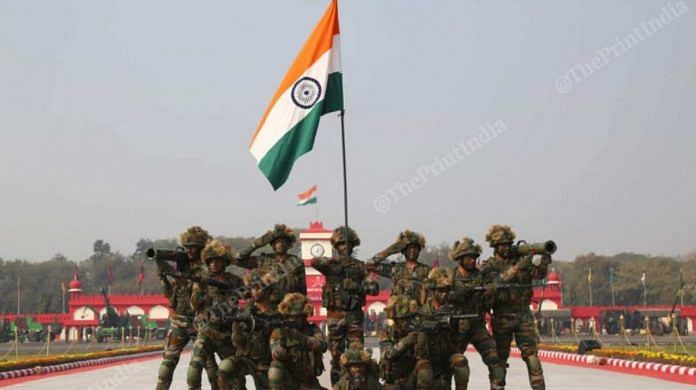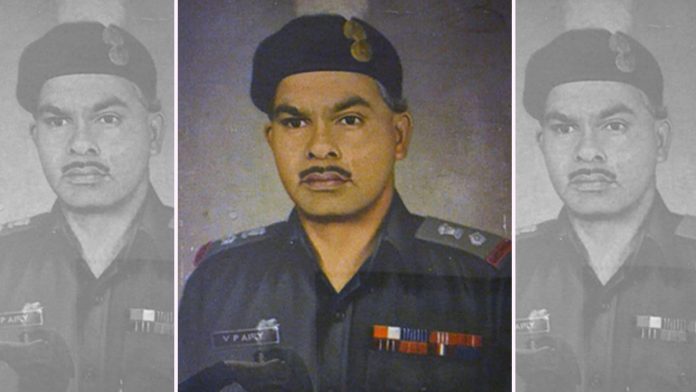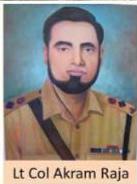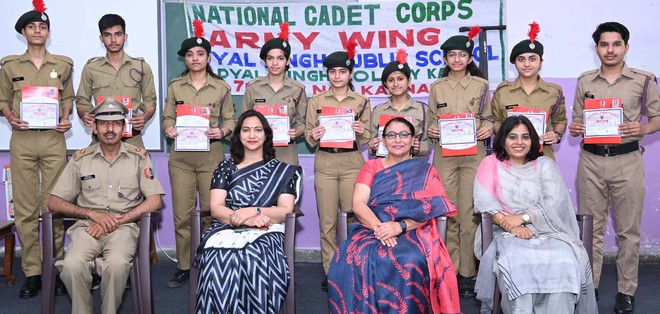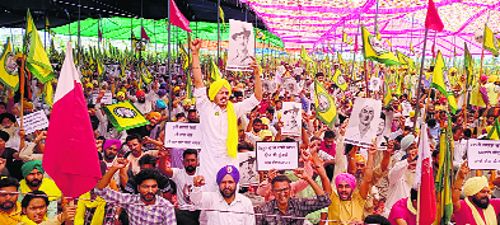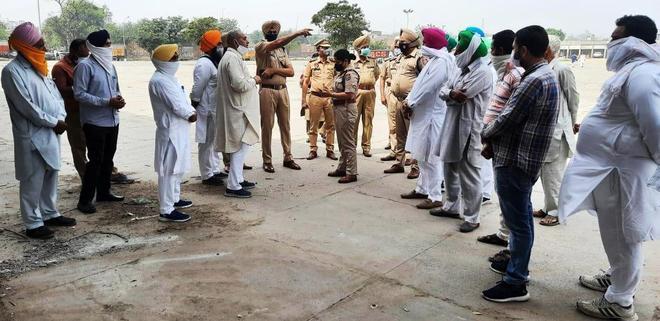The role of women in the police has been steadily increasing, though at a slow pace. We acknowledge the hitherto unrecognised but steady contribution of our women police personnel, who apart from performing their professional obligations, have also been championing the cause of women’s empowerment. The induction of women in the police has helped in empowering them and reducing crime against them.
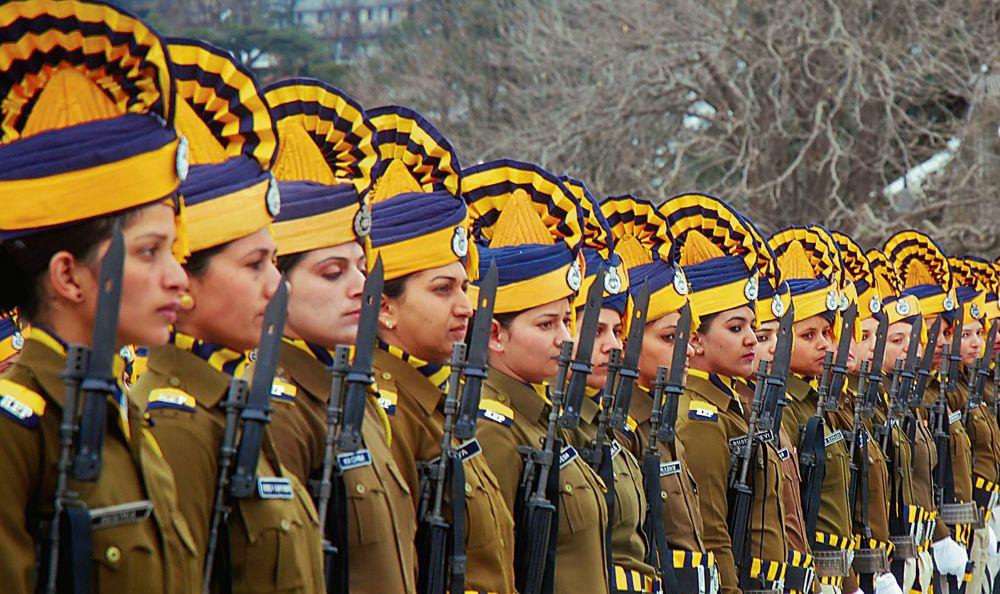
New horizon: More room for women in the police can break stereotypes. Tribune photo
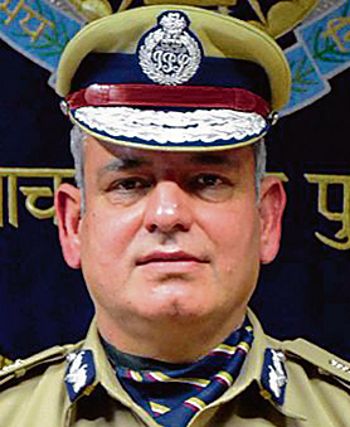
In India, most people view the police as a male preserve. On the occasion of the golden jubilee of the statehood of Himachal Pradesh, we decided to revisit the contribution of our female personnel in the state police. It is also a happenstance that the induction of women in the state police in 1973 is nearing 50 years, when we made a modest beginning by recruiting three lady constables on compassionate grounds.
In 1975, the first regular batch of 28 lady constable recruits was inducted and since then, our women personnel have gone on to become an integral part of our police force with a strength of 15 IPS officers, eight HPS officers and 2,352 non-gazetted officers.
Though the absolute number of women in the police has increased, there are challenges galore in the form of lack of women in leadership and cutting-edge positions, their marginal role in overall law enforcement, gender-specific issues, lack of infrastructure and dealing with stereotyping by their male colleagues.
Since women constitute nearly 50 per cent of humanity, it is natural that they should be fairly represented in an organisation responsible for public security. Today, women account for 13 per cent of our total state police force. Himachal Pradesh is one of the seven states — the others being Bihar, Gujarat, Maharashtra, Sikkim, Tamil Nadu and Uttarakhand — where the percentage of women cops is higher than 10. In 2009, the Union Home Ministry set a target of 33 per cent for women in the police force and Himachal Pradesh hopes to get there fast enough, if not be the first. The state already has 20 per cent reservation for women at the constable level.
In his recent budget speech, the CM announced that direct recruitment of women would be increased to 25 per cent at the level of constables and sub-inspectors. Our intent goes beyond increasing their mere numbers to have women represented in leadership levels as well.
A gender-diverse force is necessary to create a safe and secure environment for women and to achieve the larger national development goals. Women are more sensitive to the sufferings of others and have greater concern for the well-being of others. They often approach and solve problems from a different perspective than their male counterparts. It is widely recognised that women cops play a crucial role in responding to and preventing gender violence and crime against women and children. However, the challenge still remains to provide meaningful roles and equal opportunities to women police in the investigation of crime, law and order, traffic and patrolling duties.
The role of women in the police has been steadily increasing, though at a slow pace. We acknowledge the hitherto unrecognised but steady contribution of our women police personnel, who apart from performing their professional obligations, have also been championing the cause of women’s empowerment, thereby gradually sowing the seeds of modernity and positive change in society. The induction of women and their increased representation in the force have not only helped women at large feel empowered, but also helped reduce crime against them, especially the ones committed on women who had come to accept them as their fate.
They are required by law to be used for search and seizure from the person of women; they are expected to be used in law and order situations involving women. The IPC and the POCSO Act require women police officers to deal with victims of sexual assault, and even juvenile delinquents are expected to be better handled by women officers. The Covid crisis has witnessed the emergence of women cops as frontline warriors. In the face of Covid-induced uncertainties, confusion and chaos, our women have been a pillar of resolute strength.
The increasing representation and contribution of women in the HP police have debunked the myth of their lack of physical or organisational capabilities.
Secondly, it has also sent out a powerful message which has had a great impact on women’s empowerment. Thirdly, it is also a reminder of the fact that women are unduly pre-judged and stereotyped and that nothing could be further from the truth. Today, we are encouraging women to take up a central, rather than a marginal role in the police.
Although women cops give their jobs total commitment, several of their gender-specific issues remain overlooked and neglected. Infrastructure development for women has not kept pace with the growth in their numbers in the police. They still do not have adequate toilet facilities for want of which some have been known to avoid drinking water before duty. Thus, it is not uncommon to find women cops on traffic duty spend their work hours without ever drinking water.
An increasing number of women cops are moving ahead with their lives by getting married and having kids. However, there are no creches for them to leave their young children in when they go to work and as a result, some of them just lock their young kids in their homes when they report for duty. Then they require regular medical examinations on account of their special hygiene and menstruation needs. These challenges need to be addressed without loss of time to enable women to make an effective contribution.
More often than not, women have to deal with bigotry, as most male colleagues tend to have a disparaging attitude towards them. Their abilities are doubted and they have to often put up with rude or supercilious behaviour or remarks. All of this needs to be addressed by better training and an attitudinal change. Training modules also follow the old male dominated versions and the need to develop gender-sensitive training cannot be overemphasised.
The role of women in the police is set to increase and one is reminded of a saying by Victor Hugo, the famous French author, “No force on earth can stop an idea whose time has come.” The idea of women in the police has come and it is for the present police leadership to make this happen. To this end, we need to move away from tokenism and ensure women a central rather than a peripheral role in the police; a role that affords them the equality of opportunity, free from stereotypical gender bias. Otherwise, their numbers may increase but their role and impact will not.








